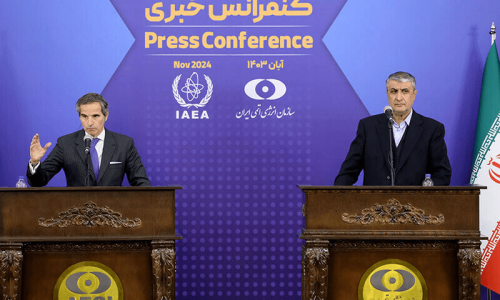KARACHI, March 14: The governments in the developing countries must increase the flow of fund and allocation of resources in the health sector with an ultimate objective to benefit the patients of low socio-economic status. It is due to the high procedural costs that poor patients end up with severe health conditions.
These observations were made by senior cardiologists from within the country and abroad at the inaugural ceremony of the first annual Dr Abdul Haque Khan Memorial International Cardiology symposium held here at a local hotel on Friday. The symposium, organised by the Karachi Institute of Heart Diseases (KIHD), will conclude on March 16.
According to senior cardiologists, over the years the impact of geographical divisions or locations among countries has been reduced with the transfer of technologies and expertise from the privileged ones to the less privileged groups, but still a majority of patients in poor countries suffer and die in miserable conditions, even due to non-communicable diseases like heart ailments, diabetes, hypertension and others.
The key-note speaker, Prof Shaheryar A. Shaikh, president, World Heart Federation, said that the socio-economic status of individuals counted very much when it came to cardio-vascular cares.
He said that around 93 per cent of the world’s population in need of cardiac surgery or comprehensive cardiac care was not getting the same as neither the patients nor their governments were in a position to afford the treatment.
Prof Shaikh said that time had come that governments should reset their priorities, avoid spending on wars and conflicts, as investment on human fellows could only bring solace to the population who lacked education and basic health facilities.
Prof Bunyad Haider from the University of Medicines and Dentistry stressed the need for improving the disease-related database.
He was of the view that due to inadequate data on health providers, patients and diseases various governments, including Pakistan, failed to strategize initiatives regarding surveillance, monitoring, support and extension of services in the health sector.
Dr Sirajul Haq Tariq, the deputy director of the KIHD, informed the audience about the establishment of the KIHD and the various ongoing development and expansion initiatives.













































Dear visitor, the comments section is undergoing an overhaul and will return soon.